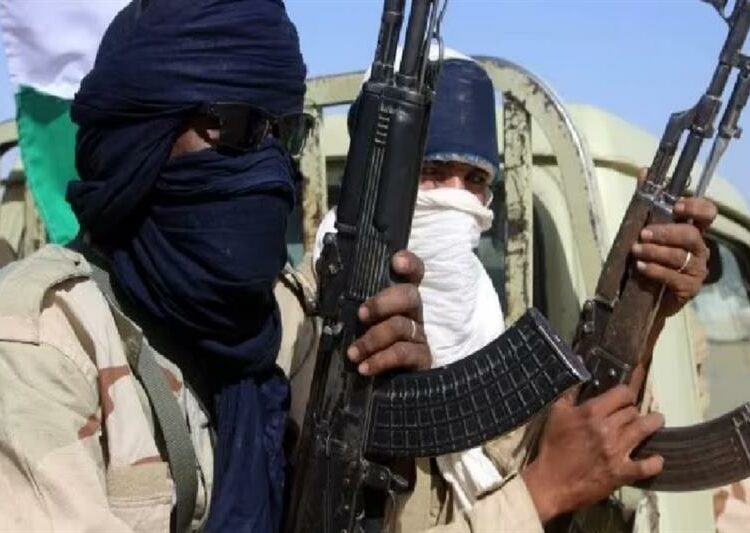The recent upsurge in the kidnapping of hapless Nigerians, especially in the northern states of Katsina, Zamfara, Borno and Kaduna states, is worrisome, to say the least.
However, the one that is most disconcerting among the lot is that of Kuriga, in Chikun local government area of Kaduna State, where bandits invaded a joint primary and secondary school on March 7, this year and abducted about 287 persons including pupils, students and at least one teacher.
The Kuriga incident is the third such occurrence in northern Nigeria in the last few days. Bandits had earlier snatched 15 schoolchildren from their hostel in Sokoto while a few days earlier another set of marauders had abducted 200 persons, mostly women and children displaced by insecurity and residing in an internally displaced persons (IDP) camp in Borno, even though the state government has disputed the figure. As if that makes it less painful.
Condemnations and expressions of concern from Nigerians have trailed the Kuriga mass abduction. Both Vice President Kashim Shettima and Kaduna State governor, Uba Sani have visited the affected school and promised that government would do everything within its powers to rescue and return the schoolchildren to their parents.
Disturbingly, in our view, the Kuriga mass abduction re-echoes the sad memories of Chibok schoolgirls’ abduction on April 14, 2014 when Boko Haram terrorists invaded Government Girls Secondary School, Chibok, in Borno State, and kidnapped 276 schoolgirls from their dormitory. Just like now, the news reverberated all over the world, eliciting the consternation and calls from prominent world leaders in politics, business and entertainment for the release of the girls.
The terrorists camped the girls in the Sambisa Forest and government forces could not find them. The sluggish response and handling of the Chibok incident by the President Jonathan administration left much to be desired. The local civil society groups, under the BringBackOurGirls (BBOG) hashtag, pressured the then administration to rescue the girls. Ultimately it did not, and it paid dearly for it in the next general election as it was voted out.
Even the Muhammadu Buhari administration that pledged to rescue all the abducted girls was only able to secure the release of some of them, while over a 100 were still unaccounted for by the time it left office after eight years. Also, on its watch in 2018, the terrorists struck again in Dapchi, Yobe State, and kidnapped 110 schoolgirls, employing a similar tactic to the Chibok incident. However, the Buhari administration was able to negotiate a deal with the terrorists and they returned the girls to their community after one month of captivity, but five of them had already died, and one, Leah Sharibu, was kept back to this day for refusing to convert to lslam.
As a newspaper, we are appalled that this kind of mass abduction should be carried out successfully, again, in Nigeria without any immediate consequence to the perpetrators. It gives the impression that the government has not learned anything from mass abductions in the past. We are appalled that such a high number of persons have been moved by land for days undetected in this era of internet penetration and technology, despite the heightened security presence across the region.
The Kuriga incident also points to the failure of the Safe School Initiative (SSI), launched a decade ago in response to incessant attacks on schools, to produce the desired result.
As a newspaper, we are worried that like in 2014 when the Jonathan Presidency treated the Chibok kidnaping like political gang-up against the administration and delayed to act; the same might be happening this time around. Just like in Chibok, the present presidency has not responded to the issue with the urgency it deserves, Infact, despite the vice president visiting the affected school, there has been calm and equanimity from the Presidency. It has neither issued a condemnation of the incident nor given marching orders to the security forces to find the schoolchildren as quickly as possible. At this moment, the federal government which controls the security architecture has not told Nigerians where the children have been taken nor shown that it is prioritizing their rescue.
The Presidency must treat Kuriga as a crime scene and deploy its state power to not only rescue the victims but send a message to the outlaws that this kind of national embarrassment can no longer be tolerated in Nigeria.
We urge all well-meaning Nigerians and groups to put pressure on the government and its security agencies to expedite action on this matter. Most of the surviving Chibok girls who spent years in captivity, were forcefully married off and put in the family way by their captors, with their educational careers completely abbreviated.
Some are still missing. The Tinubu administration has a duty to ensure that this is not the case this time round.
We’ve got the edge. Get real-time reports, breaking scoops, and exclusive angles delivered straight to your phone. Don’t settle for stale news. Join LEADERSHIP NEWS on WhatsApp for 24/7 updates →
Join Our WhatsApp Channel










